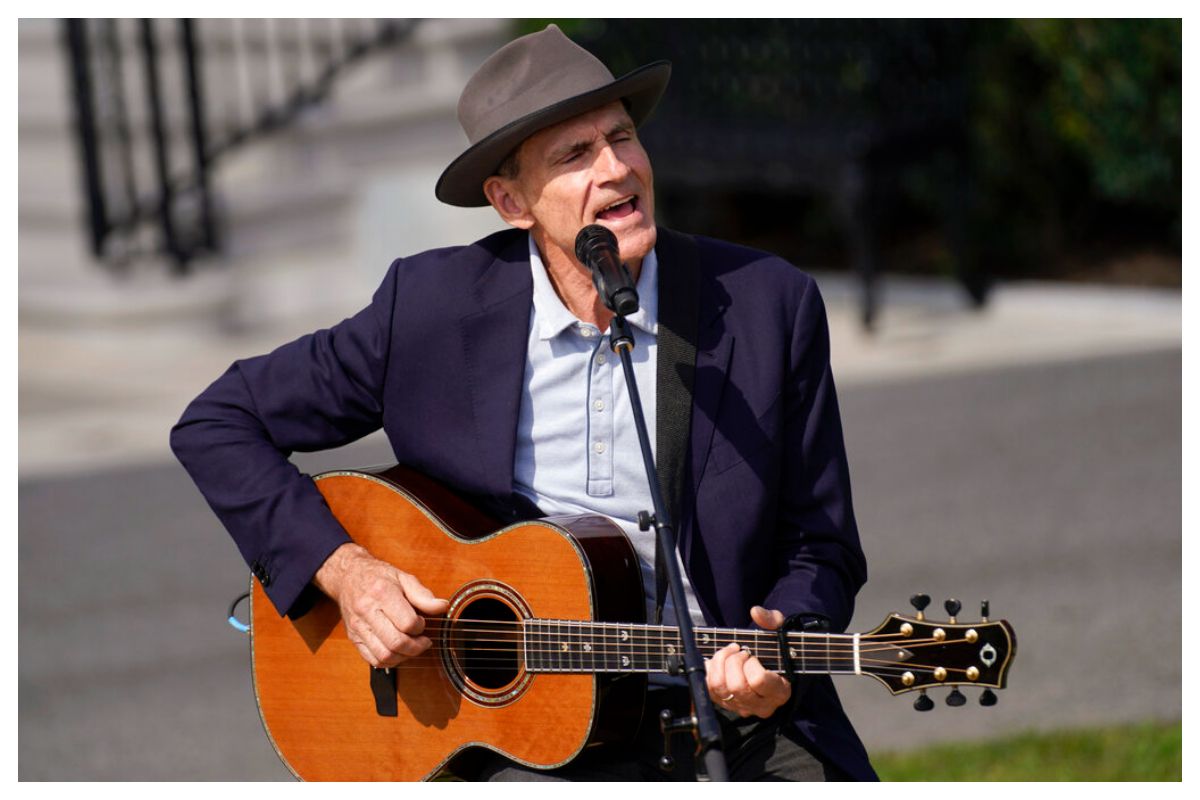The Senate simply authorised a bipartisan gun violence invoice on Thursday that appeared unthinkable a month in the past, organising ultimate approval of what is going to be Congress’ most far-reaching response in a long time to the nation’s run of brutal mass shootings.
After years of GOP procedural delays that derailed Democratic efforts to curb firearms, Democrats and 15 Republicans determined that congressional inaction was untenable after final month’s rampages in New York and Texas. It took weeks of closed-door talks however a bargainers from each events emerged with a compromise embodying incremental however impactful motion to curb bloodshed that has come to often shock — but not shock — the nation.
The $13 billion measure would toughen background checks for the youngest gun patrons, hold firearms from extra home violence offenders and assist states put in place pink flag legal guidelines that make it simpler for authorities to take weapons from individuals adjudged harmful. It would additionally fund native applications for varsity security, psychological well being and violence prevention.
The election-year package deal fell far wanting extra strong gun restrictions Democrats have sought and Republicans have thwarted for years, together with bans on the assault-type weapons and high-capacity ammunition magazines used within the slayings in Buffalo, New York, and Uvalde, Texas. Yet the accord let leaders of each events declare victory and reveal to voters that they know compromise and make authorities work, whereas additionally leaving room for both sides to enchantment to its core supporters.
“This is not a cure-all for the all the ways gun violence affects our nation,” stated Senate Majority Leader Chuck Schumer, D-N.Y., whose get together has made gun restrictions a objective for many years. “But it is a long overdue step in the right direction.”
Senate Minority Leader Mitch McConnell, R-Ky., in a nod to the Second Amendment proper to bear arms that drives many conservative voters, stated “the American people want their constitutional rights protected and their kids to be safe in school.” He stated “they want both of those things at once, and that is just what the bill before the Senate will have accomplished.”
The day proved bittersweet for advocates of curbing gun violence. Underscoring the enduring efficiency of conservative cIout, the right-leaning Supreme Court issued a call increasing the best of Americans to hold arms in public by placing down a New York regulation requiring individuals to show a necessity for carrying a weapon earlier than they get a license to take action.
McConnell hailed the justices’ choice and Senate passage of the weapons invoice as “complementary victories that will make our country freer and safer at the same time.”
The Senate vote on ultimate passage was 65-33. A cluster of House Democrats who watched the vote within the chamber’s rear included Rep. Lucy McBath, D-Ga., whose 17-year previous son was shot to dying in 2012 by a person complaining his music was too loud.
In the important thing roll name hours earlier, senators voted 65-34 to finish a filibuster by conservative GOP senators. That was 5 greater than the 60-vote threshold wanted. The House deliberate to vote on the measure Friday and approval appeared sure.
On each votes, 15 Senate Republicans joined all 50 Democrats, together with their two allied independents, in backing the laws.
Yet the votes highlighted the dangers Republicans face by defying the get together’s pro-gun voters and firearms teams just like the National Rifle Association. Sens. Lisa Murkowski of Alaska and Todd Young of Indiana have been the one two of the 15 up for reelection this fall. Of the remainder, 4 are retiring and eight don’t face voters till 2026.
Tellingly, GOP senators voting “no” included potential 2024 presidential contenders like Ted Cruz of Texas, Josh Hawley of Missouri and Tim Scott of South Carolina. Some of the get together’s most conservative members voted “no” as nicely, together with Sens. Rand Paul of Kentucky and Mike Lee of Utah.
While the Senate measure was a transparent breakthrough, the outlook for continued congressional motion on gun curbs is dim.
Less than one-third of the Senate’s 50 GOP senators backed the measure and stable Republican opposition is definite within the House. Top House Republicans urged a “no” vote in an e-mail from the No. 2 GOP chief, Rep. Steve Scalise of Louisiana, that known as the invoice “an effort to slowly chip away at law-abiding citizens’ 2nd Amendment rights.”
Both chambers — now narrowly managed by Democrats — may nicely be run by the GOP after November’s midterm elections.
In an announcement, President Joe Biden stated Uvalde residents instructed him when he visited that Washington needed to act. “Our kids in schools and our communities will be safer because of this legislation. I call on Congress to finish the job and get this bill to my desk,” Biden stated.
Senate motion got here one month after a gunman killed 19 college students and two lecturers in Uvalde. Just days earlier than that, a white man was accused of being motivated by racism as he killed 10 Black grocery buyers in Buffalo. Both shooters have been 18 years previous, a youthful profile shared by many mass shooters, and the shut timing of the 2 slaughters and victims with whom many may determine stirred a requirement by voters for motion, lawmakers of each events stated.
The talks have been led by Sens. Chris Murphy, D-Conn., Kyrsten Sinema, D-Ariz., John Cornyn, R-Texas, and Thom Tillis, R-N.C. Murphy represented Newtown, Connecticut, when an assailant killed 20 college students and 6 staffers at Sandy Hook Elementary School in 2012, whereas Cornyn has been concerned in previous gun talks following mass shootings in his state and is near McConnell.
Murphy stated the measure would save 1000’s of lives and was an opportunity to “prove to a weary American public that democracy is not so broken that it is unable to rise to the moment.”
“I don’t believe in doing nothing in the face of what we saw in Uvalde” and elsewhere, Cornyn stated.
The invoice would make the native juvenile information of individuals age 18 to twenty accessible throughout required federal background checks once they try to purchase weapons. Those examinations, presently restricted to 3 days, would last as long as a most of 10 days to provide federal and native officers time to go looking information.
People convicted of home abuse who’re present or former romantic companions of the sufferer could be prohibited from buying firearms, closing the so-called “boyfriend loophole.”
That ban presently solely applies to individuals married to, residing with or who’ve had youngsters with the sufferer. The compromise invoice would lengthen that to these thought of to have had “a continuing serious relationship.”
There could be cash to assist states implement pink flag legal guidelines and for different states with out them that for violence prevention applications. Nineteen states and the District of Columbia have such legal guidelines.
The measure expands using background checks by rewriting the definition of the federally licensed gun sellers required to conduct them. Penalties for gun trafficking are strengthened, billions of {dollars} are supplied for behavioral well being clinics and college psychological well being applications and there’s cash for varsity security initiatives, although not for personnel to make use of a “dangerous weapon.”


